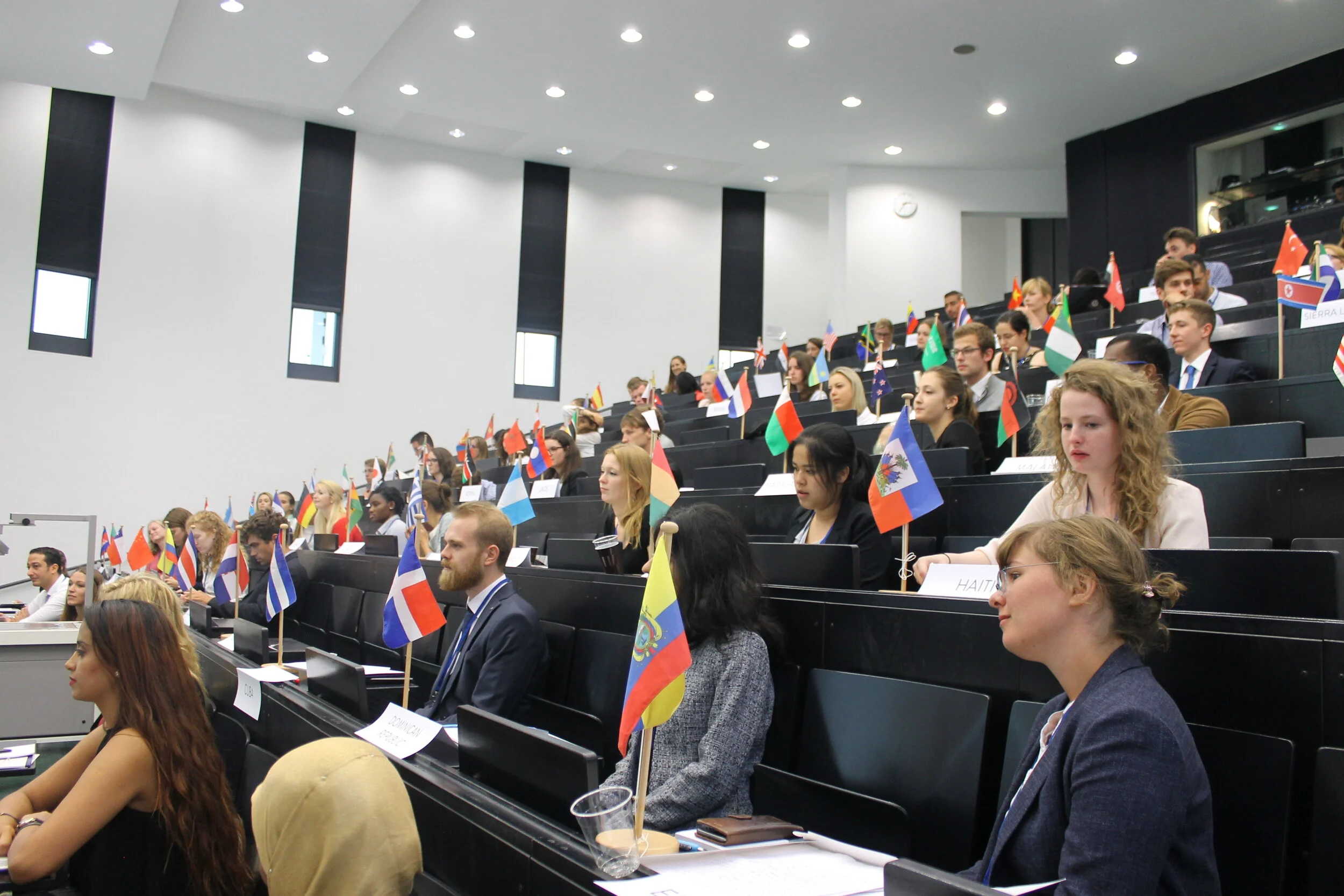What to expect from World Health Organization simulations?
For those interested in health diplomacy, the World Health Organization (WHO) simulations are an interactive way to obtain a better grasp of the global health agenda and the processes by which political decisions are achieved. Stepping into the shoes of real diplomats and representing the interests of different parties is a great opportunity to learn more about the work of the WHO and practice some of the essential skills of effective health advocates: group communication, leadership, negotiation, and many more.
The first time I participated in the WHO simulations was NorWHO 2015 held in Copenhagen. The atmosphere was extremely welcoming and focused on learning and working together. The conference was packed with additional activities: workshops, lectures, and a trip to the UN City. That same summer, I attended two similarly designed events in Berlin and Paris. During the three conferences, I had the chance to represent Poland, Brazil, and Costa Rica on issues of non-communicable diseases, disaster and risk management, and health innovations and learned a lot. But first, let’s look at the process leading up to the conferences and the simulations themselves.
Young Leaders for Health conference, Berlin, 2015
In order to participate in such an event, you have to submit your application explaining your motivations, what you hope to gain from the experience, and what role you see yourself in. You can choose from a variety of stakeholders: Member States, representatives of non-governmental organizations or private sector (e.g., the pharmaceutical industry), or the media. More experienced applicants can also be given roles of assembly moderators and regional chairs. Upon acceptance, you will be required to write a position paper on the topic of the conference that describes the importance of that issue in the country or for the organization you will represent, forcing you to examine the issue in-depth and consolidate your narrative strategy. After all, such high-level meetings involve a lot of politics and you will need to be well prepared for your voice to stand out from the pack.
Now to the meat of the matter. The WHO simulations begin with an opening session in which the parties involved state their respective positions. Regardless of your role, you will find yourself moving between regional meetings and plenary sessions. During the former, representatives from Member States discuss policy options for the relevant regions, with the goal of finding common viewpoints that can be brought up during plenary sessions in a collective manner. Just like you would in real life, you need to take into account the competing interests of other stakeholders campaigning for their own benefit. Some delegates representing more powerful countries and organizations can play their parts particularly well, plotting and forming alliances even during lunches and coffee breaks. Plenary sessions provide a forum for all parties to come together and develop a resolution that addresses the thematic issues. Thanks to collaborative efforts, the purpose is to develop documents that may be voted on, reinforcing the commitment and actions to tackle the debated issue. We want to avoid a situation in which a few days' work of negotiations can be wasted due to a lack of consensus. The final materials are then sent to the WHO headquarters to present the vision of the necessary policy changes.
NorWHO, Copenhagen, 2015
The WHO simulations as a form of cooperative learning on international health governance represent a rare opportunity to practice debating, negotiation, and problem-solving skills. Interacting with a diverse crowd of professionals from all over the world and with different backgrounds allows you to become accustomed to unique work dynamics and acquire cultural competency. Pursuing leadership roles during a conference boosts professional self-confidence. Networking and meeting people is also one of the most important outcomes of such meetings. The people I met at the conferences have one on to do some truly amazing things in public and global health.
ParisWHO, 2015
Such initiatives, in my opinion, are a great way of combining professional development with leisure and a good excuse to visit other places. They don’t have to be expensive and multi-day workshops. Similar simulations can be successfully performed in the classroom. You can also bring the model to your own city and country, as some individuals who participated the aforementioned simulations did, mobilizing their communities of students and young professionals.


